Masaya Nihei
Birth : 1940-12-04, Nagatachō, Tokyo, Japan

The film is composed of stock footage from the original Ultraman television series with additional newly filmed content, and it served as an “epilogue” as Ultraman returns to Earth for one final battle.

The organization Mighty Jack is formed to combat the criminal syndicate known as "Q", and are given a large array of advanced weapons, chief among them being a high-tech submarine. Harold Hatari is abducted by Q, and Mighty Jack is dispatched to rescue him. Hatari is interrogated and threatened with blinding lights, but the Mighty Jack crew rescue him in the nick of time. Later, Q is discovered to be using "hot ice" (water that remains solid at room temperature) to create weapons and a secret ocean base disguised as an iceberg (though it's not precisely clear how hot ice could be a major world threat). Q then attempts to take over the Mighty Jack sub.
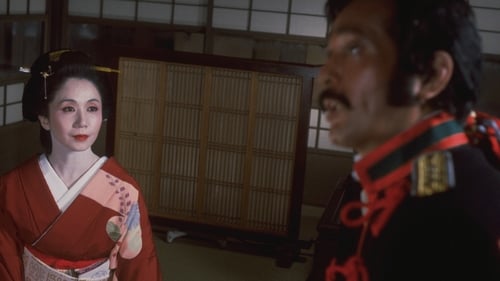
Tomosaburo Kumagai
Set in the icy wilderness of Hokkaido during the early days of the Meiji era, where the brutal warden of Kabato Prison terrorizes convicts sentenced to forced labor to build the roads needed to open up the territory.
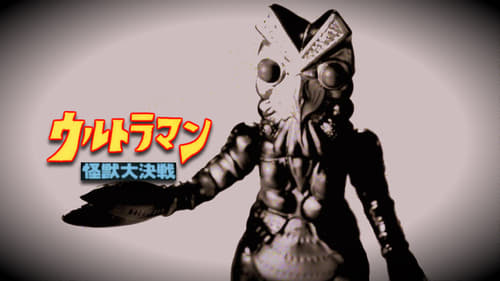
Mitsuhiro Ide
A 1979 Japanese tokusatsu kaiju film produced by Tsuburaya Productions, consisting of re-edited material from the original television series Ultraman. Ultraman: The Great Decisive Battle was the 1st movie of the third Showa phase (Jissouji's Ultraman being first and Ultra Brothers vs. The Monster Army being second) and because of this Tsuburaya decided to make this a reunion of the last 12 Ultras (aside from Ultraman 80 which hadn't come out yet). Tsuburaya decided to give this a different tone than Jissouji's Ultraman, having more new scenes and appealing to the all-Ultra fan.

Akio Jissoji's Ultraman is a 1979 Japanese tokusatsu kaiju film directed by Akio Jissoji. It is a compilation film made up of scenes from Jissoji's episodes of the original Ultraman TV series.

1977 Japanese movie
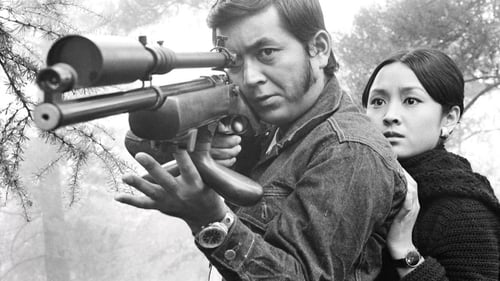
A gunslinger is hired to kill a news photographer. The young ward of the shot photographer discovers the set-up behind the killing - that a laboratory is being set up by a Nazi organization to capture and train talented youth and that the photographer was about to expose it.

In the sixth and final episode Rentaro Mikuni steals the show as Baiken Shishido, Musashi's nemesis. Mikuni is the nominal villain of the film, but he is a devoted husband and father as well. He tries to kill Musashi only to avenge the death of his brother-in-law. While Baiken (who wields a chain and sickle against Musashi's sword) is a very human character and the emotions that Mikuni displays in his performance are quite believable and engaging
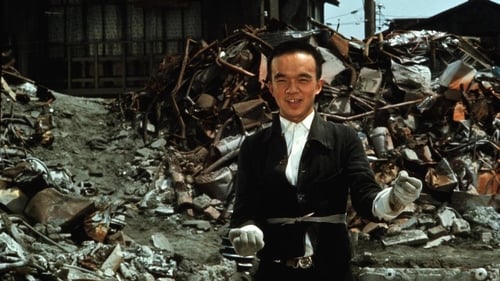
4th Man Calling Out
This film follows the daily lives of a group of people barely scraping by in a slum on the outskirts of Tokyo. Yet as desperate as their circumstances are, each of them—the homeless father and son envisioning their dream house; the young woman abused by her uncle; the boy who imagines himself a trolley conductor—finds reasons to carry on.

The disbandment of the Tanno clan left gang member Tetsu to stray from the crime family's fold. He roamed the streets as a one man band, wearing a denim jacket and long hair with sunglasses to cover his piercing eyes. Befriending a like-minded lone wolf by the name of Gebasaku, Tetsu builds a coalition against higher forces. A graphic portrayal of irrepressible anger and a friendship worth dying for.
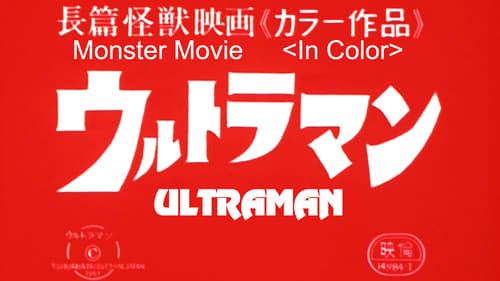
Mitsuhiro Ide
The film consists of re-edited material from the original television series Ultraman. Episodes 1, 8, 26, and 27 were used for the film. They were narrated by Hikari Urano as an "Ultraman Documentary". Allegedly only one new scene was shot, and that some parts of the movie where shot in black and white for unknown reasons. The movie screened at the same time as the Toho movie King Kong Escapes.
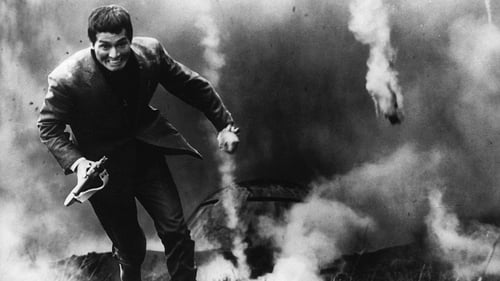
Pappy
A nerdy young college instructor named Shinji Kikyo returns home one day to find himself the target of a mad assassin. Surviving somewhat miraculously, he fends off other assassins and with the help of reporter Keiko Tsurumaki and car mechanic Bill Otomo, eventually discovering that a "population control" association is really an assassination squad led by Shogo Mizorogi, who has been training patients of a mental asylum to become killers.

The recorded stage debut of the original Ultraman.

Tashiro coincidentally meets his best friend Sugimoto in a bar very close to the apartment in which Sugimoto’s wayward wife is found dead. Although Tashiro is not a suspect in the police investigation, he is racked with guilt and confesses to his wife, Masako. In an effort to further relieve his tortured sense of guilt, he then confesses to Sugimoto. Neither his wife nor his friend can believe that he could have been involved.
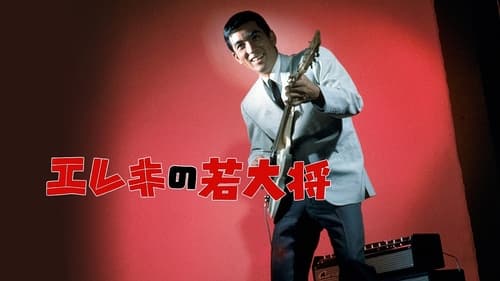
Nishina
Young Guy (Kayama) competes in an electric guitar competition and plays American-style football. Released alongside Invasion of Astro Monster.

In 1943, the Aleutian island of Kiska was fortified by a small contingent of Japanese soldiers. When word arrived of an impending attack by an overwhelming force of Americans, the Japanese Navy attempted one of the most daring and unlikely evacuations in military history. This is that story.
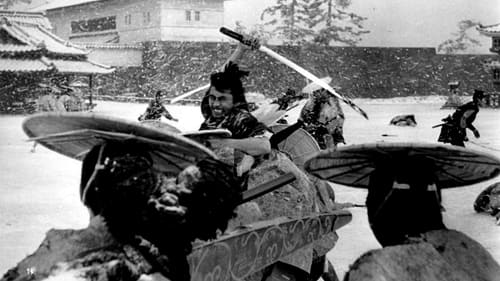
Ronin
Japan, 1860. The men of the Mito clan, victims of the Ansei purge, anxiously prowl around the Sakurada Gate of Edo Castle with the intention of assassinating Naosuke Ii of Hikone, tairō of the Tokugawa shogunate and responsible for their misfortune.

Seinen Miyaji
In the third installment in the "Kokusai himitsu keisatsu" series, agent Jiro Kitami investigates the mysterious disappearance of a prominent scientist. Edited into Woody Allen's "What's Up, Tiger Lily?" along with the 4th film in the series, "Key of Keys".
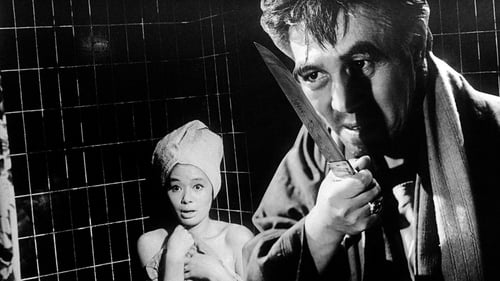
Tatsumi
During the mayoral election, two ex-prisoners decide to replace the lucky pen of an annoying candidate with a mini-bomb.
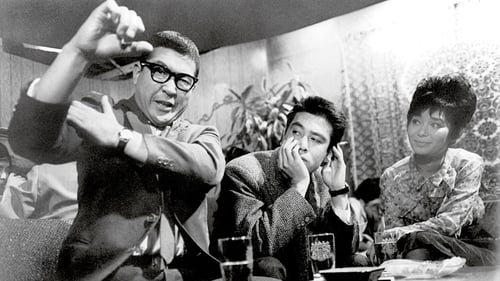
A salaryman's drunken ravings in public attract the attention of journalists who coerce him into telling them his life's story.
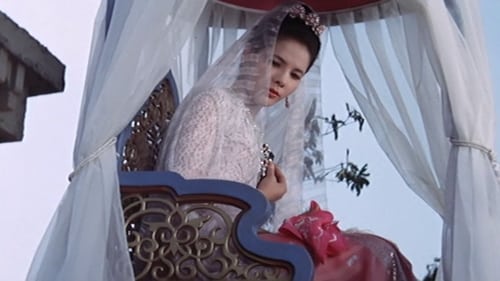
Rebel
An adventurous and daring sailor sets sail to the castle of an ailing king to stop an evil premier, hungry for power and wealth, from succeeding the throne and marrying the king's beautiful daughter. Along the way, with the help of some courageous rebels and a lustful wizard, he must overcome the powers of a bewitching witch, a band of ruthless pirates, and the castle's Imperial guards. He must also free those kidnapped into slavery and restore the king's reputation.
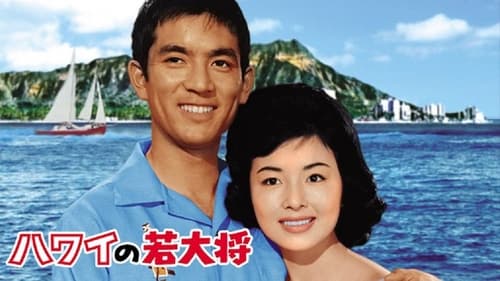
江口敏
Fourth entry in Toho's Wakadaishō series directed by Jun Fukuda and released on a simultaneous screening with Matango. Filmed on location in Hawaii.

A brave, highly principled warrior resigns his post as a body guard to the head of a powerful clan after he learns that his employers have been smuggling arms to the enemy. The remaining samurai try in vain to coerce him back, but their efforts are thwarted by crooked warriors who launch an attack...
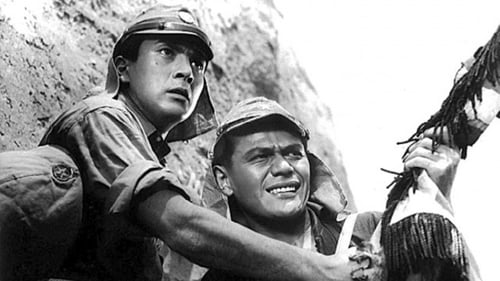
(uncredited)
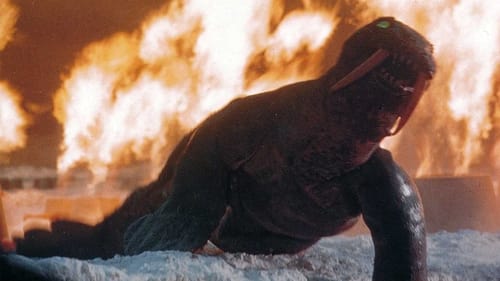
Itô
In 1980, a giant planetoid named Gorath is discovered to be on a collision course with Earth. Even though it is smaller than Earth, its mass is huge enough to crush the Earth and destroy it. A mission sent to observe Gorath is destroyed after all the orbiting ships are drawn into the planetoid. A later mission is sent to observe and the crew barely leaves before suffering the same fate. However Astronaut Tatsuo Kanai is left in a catatonic state due to his near death experience. The Earth's scientists then come up with a desperate plan to build giant rockets at the South Pole to move Earth out of Gorath's path before it is too late.

Japanese neo-noir crime drama movie directed by Jun Fukuda
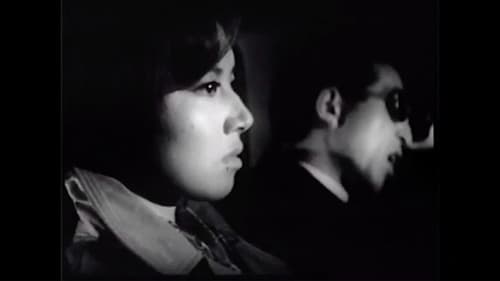
Taut thriller about a too-perfect criminal case against an ex-convict that makes a nosy detective suspicious.

Yuzo Kayama plays the protagonist, a whale-hunting cannon manufactuing supervisor, whose brother is an automobile tester for Komatsu Motors which has a fatal accident. As his brother investigates the "Accident" with his old college friend (makoto Sato), now a reporter... They stumble across murder, espionage and cover-ups. High-class night club, femme fatale, and a "Blueprint of Murder" all adds up to a bigger plot then first expected.























